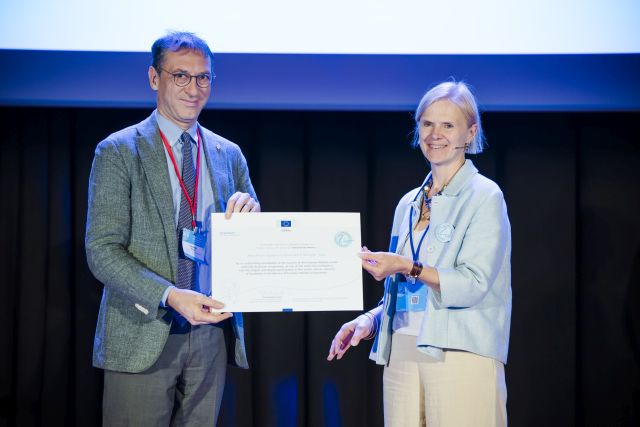Erasmus Mundus Prize awarded to the University of Bologna

"Beyond Borders and Boundaries: 20 Years of Erasmus Mundus" is the title of a two-day conference organised by the European Commission's Directorate-General for Education, Youth, Sport and Culture (DG EAC) and the European Education and Culture Executive Agency (EACEA) in Brussels on 27-28 May to celebrate the 20th anniversary of Erasmus Mundus. Representatives of political and academic institutions, coordinators and partners of Erasmus Mundus Master's degree programmes, alumni and wider stakeholder organisations acknowledged the success of the programme as a tool for the internationalisation of higher education, and reaffirmed their commitment to building common pathways.
The University of Bologna has been one of the most active universities in the Erasmus Mundus programme since its launch in 2004, coordinating five Erasmus Mundus degree programmes and collaborating in 26 others. This intense and consistent involvement has placed it in the top ten universities in the programme, and has earned it the Institutional Award. In accepting the award, Rector Giovanni Molari reaffirmed the importance of implementing innovative and attractive degree programmes, in the context of an ever-increasing integration of international, European and non-European partners. Erasmus Mundus "has encouraged universities to develop strategies that transcend geographical and disciplinary boundaries," the Rector emphasised, "and has contributed to the creation of truly international communities of students and professors", growing through the sharing of curricula, cultural perspectives and teaching methods.
Two decades after its launch, the Erasmus Mundus programme continues to stand out among EU-level instruments facilitating international cooperation in higher education, thanks to its support for joint Masters and PhD programmes and its attractive scholarship scheme, which gives students from all over the world the opportunity to study in at least three different institutions.
The conference provided an important opportunity to highlight, discuss and reflect on the multi-level impact of Erasmus Mundus, individual and institutional changes in governance, learning and teaching, international cooperation and administrative processes. Among the most important aspects addressed were those related to long-term sustainability, which is crucial for making the transformative power of a programme such as Erasmus Mundus a structural dimension of higher education.






